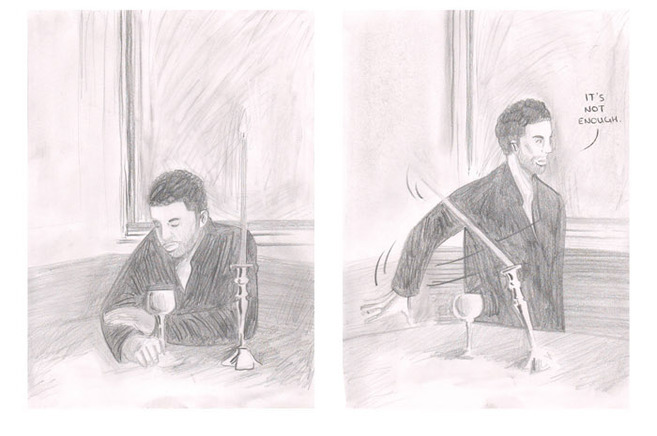Every time I think Fear the Walking Dead has hit bottom, out comes some big steampunk subterranean drillmobile to dig even deeper. On “Blood in the Streets,” this week’s episode, it comes in the form of Reed, the leader of the trio of pirates who’ve been following our heroes since they hit the high seas. He and his mates, Alicia’s ersatz shortwave-radio boyfriend Jack and a very pregnant woman named Vida, bluff their way aboard the Abigail by faking a bloody pregnancy complication. Chris, standing guard duty on deck with Ofelia, is paralyzed with indecision about whether or not to shoot them, shouting to anyone who’ll hear for advice, but it’s too late — though not too late to spare us the obscene spectacle of a teenager pointing a gun at a pregnant stranger and wondering aloud whether he should shoot her to death.
But this is Fear the Walking Dead, so of course the answer was yes: Once on board, the newcomers drop the ruse, quickly overpower everyone aboard, shoot Strand’s raft and leave him for dead as he tries to escape, help their pirate leader Connor kidnap Alicia and Travis, and nearly kill everyone else before an unexpected rescuer (more on him later) kills them instead. Before he dies, Reed drives the point home by taunting Chris for his hesitation to, and I stress this, shoot and kill a pregnant woman in distress and the two panicked men trying to help her. “‘Should I shoot ’em?’ Piece of advice: If you have to ask the question, someone should already be dead.”
Folks, if I sat around and tried, I could not possibly have come up with a better illustration of what makes this show such an appalling, fascistic spectacle. Like I keep saying over and over and over, because the show keeps doing it over and over and over, the correct choice in any given situation is always cruelty and violence, without exception. Anything less — helping children, aiding a wounded person, not shooting a pregnant woman to death — is foolhardy to the point of suicide. For the preservation of your people, you must act without mercy. I dunno about you, but I liked it better in the original German.
I reviewed last week’s Fear the Walking Dead for Decider, and you’re damn right I linked to a speech Himmler delivered to the SS.

